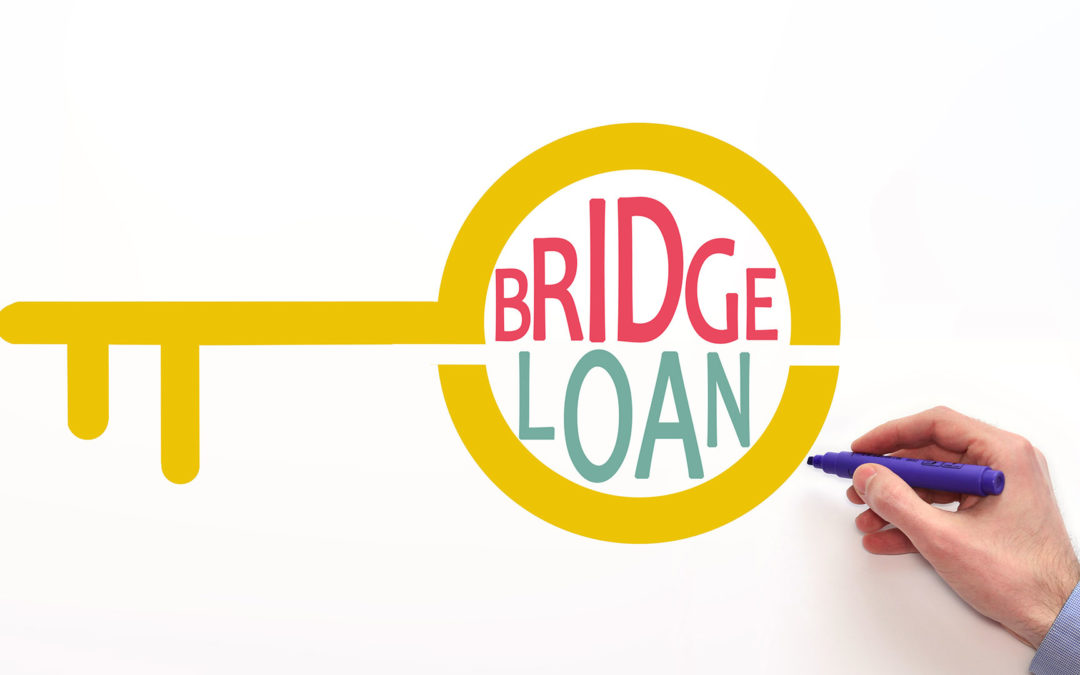If you need short-term financing for a business or residential property, a traditional mortgage or commercial loan isn’t the best course of action. Instead, you may want to consider a bridge loan, which is designed for temporary financial needs. Here’s the rundown on the specifics of this type of loan.
What Is a Bridge Loan?
Perhaps it is best to start with a bridge loan definition: it is a short-term loan taken out to secure funds during an interim stage of business or life. A bridge loan is also sometimes referred to as gap financing, interim financing, or a swing loan. This type of financing can be used by both companies and individuals.
Using a Bridge Loan for Residential Properties
There are several cases where a bridge loan could prove to be advantageous for home buyers. For instance, a residential bridge loan can be used to secure funding for the purchase of a new home before the sale of an existing one. This strategy would be especially useful if you were faced with an unexpected move, such as a job change that included a change of residence. A bridge loan could also be a wise choice if you’re buying a property at auction and need funds quickly.
A construction company could require funding before it’s willing to start building a new home. In this situation, a traditional mortgage may not be possible. A bridge loan can also be used to obtain the necessary cash to make a down payment on a new home. After you sell your old property, you can pay off the bridge loan.
In order to circumvent private mortgage insurance (PMI), you have to put down at least 20% on the purchase of a new home. This is a steep requirement when compared to the prices of what happens to be nearly everyone’s most expensive purchase. A bridge loan can be used make the necessary down payment, which will eliminate the cost of PMI.
In addition to residential needs, a bridge loan can provide short-term financing for business purposes as well.
Commercial Bridge Loans
Let’s say you’re a real estate investor and you flip houses for a living. A bridge loan can provide the funds you need to acquire a property. A bridge loan can also be used by a company when it needs funds to pay for operating expenses during short intervals.
Say a particular enterprise has an upcoming bond sale, but needs money to pay for inventory, rent, payroll and other expenses. It can take out a bridge loan to cover this overhead until funds from the bond sale come in.
There are countless other areas where a commercial bridge loan could come in handy. For example, interim financing can be used to acquire office space, renovate multi-family dwellings, or quickly obtain retail space before interest rates go up.
If you need financing for a short-term business project, an Avid Commercial bridge loan can be used for a variety of purposes. Loan amounts vary from $500,000 to $10 million.
Details of Bridge Loans
Gap financing comes with much shorter terms than traditional 30-year or even 15-year mortgages. A typical bridge loan will have a repayment schedule of less than three years, and oftentimes the term is twelve months or less. Some lenders will offer terms as short as six months. Like other types of real estate loans, a bridge loan uses your current property’s value as collateral.
Short-term home loans have a variety of costs, conditions, and terms. Sometimes a bridge loan will be structured so that it eliminates the first mortgage; while other bridge loans will actually combine the first mortgage with the new.
Payment terms can also vary from one lender to another. For example, some bridge loans will require an upfront interest payment, while others will allow you to wait several months before making a single payment. Most bridge loans require regular payments, and a few will come with a lump-sum interest payment at the end of the term. Bridge loans usually have no repayment penalties, a convenient feature.
In order to get a bridge loan, you may be required to take out the second mortgage with the institution offering the short-term product.
Advantages of Bridge Loans
Besides the obvious benefit of securing a second property without having to sell your first, a bridge loan also provides a quicker approval process than a traditional mortgage or home equity line of credit.
Another benefit of a bridge loan is the flexibility in payment options that often come with this type of financial product. With a short-term loan, you will also have the ability to leave your current home on the market for a longer period of time in hopes of finding a higher bidder.
In hot real estate markets, a bridge loan can give you the opportunity to purchase a property that you think is going to sell very quickly. If you have to sell your home first, the property you’re eyeing may be gone before you secure the required funds.
A bridge loan creates the possibility of getting the property with no sales contingency. This means you don’t need to sell your home before buying the second property.
A bridge loan is also frequently a better option than other sources of funds. For example, instead of taking out a bridge loan to finance that new property you just discovered, you could take a loan from your 401(k). However, this route takes more time than a bridge loan; and oftentimes short-term financing is needed right away.
A home equity loan is also a possibility, but here too a bridge loan is faster. A HELOC usually takes at least a month to set up
Caveats of Bridge Loans
If you do decide that a bridge loan is the right choice for your financial needs, you should be aware of a few stipulations before applying for one. First, to qualify for a bridge loan, you’ll have to prove that you have the ability to carry two mortgages at once. Some applications may not be approved for this situation.
You’ll need at least 20% equity in your old home in order to qualify for temporary financing. Bridge loan lenders typically approve short-term financing for up to 80% of a home’s appraised value.
The cost of a bridge loan is always higher than for a traditional mortgage. Lenders usually charge above-average interest for these products. An APR that is 2% above prime is typical.
Commercial Real Estate Loans
Avid Commercial provides other types of loans that businesses can take advantage of. We operate an investment loan program that helps real estate investors obtain the necessary financing they need. Loan rates and terms depend upon credit strength, location and type of property, and loan-to-value ratio.
Another program that Avid Commercial offers is the very popular SBA loan. We specialize in 504 loans, which can be used by small businesses to obtain up to $5 million. Funds can be used to acquire new equipment and facilities, purchase land, or improve existing facilities.
Avid Commercial Can Jump-Start Your Business
We have helped numerous small businesses across more than twenty states obtain the financing they need for a variety of projects. Their testimonials attest to our ability to meet or exceed our clients’ expectations. If you would like to hear more about the financial resources your business may be qualified for, give Avid Commercial a call at 801.365.1740 or send us an e-mail

